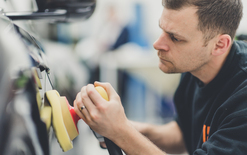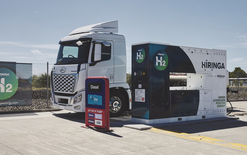EECA releases 2017-2022 Strategy
The Energy Efficiency and Conservation Authority (EECA) has unveiled its 2012-2022 strategy. Electric vehicles and vehicle uptake feature in the 28-page report, released in June, which aims to unlock “our energy productivity and renewable potential.” One key target of the Strategy is that EVs make up two per cent of the vehicle fleet by the end of 2021. According to Ministry of Transport statistics, electric vehicles (including plug-in hybrids) made up one per cent of new registrations in 2017 so far. As there are currently 3,834 EVs on Kiwi roads, a tiny fraction of the total 3,018,118 vehicles in the fleet, according to the most recent data, and leaving plenty of room for growth. The ultimate aim for some time has been to double the number of EV registrations each year to 64,000 in 2021, a target which has been reached every year since 2014, and 2017 also looks set to hit 5,334 total registrations according to the current growth of EV sales. The EECA says this target can be achieved by implementing the Electric Vehicles Programme and “refocusing EECA’s business programme towards emissions and productivity opportunities in transport.” To increase EV uptake among individuals and households, the EECA’s Strategy says the government will “introduce new, and periodically review, minimum energy performance standards and labels for appliances, equipment and vehicles to ensure that potential consumers are provided with clear and accurate energy information at the point of sale.” Vehicles sold in trade are currently required to have a sign clearly showing a vehicle’s fuel consumption that is prominently displayed. The EECA said it would explore options in partnership with the Ministry of Transport for how the government can increase efficient driving practices and “the pace of adoption of more fuel efficient vehicles (invluding EVs) by households.” The Strategy also suggests lowering energy costs by charging EVs on cheaper rates at off-peak times, which could also increase EV uptake.





